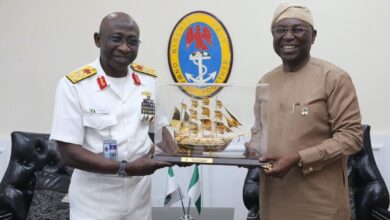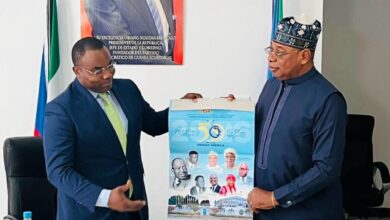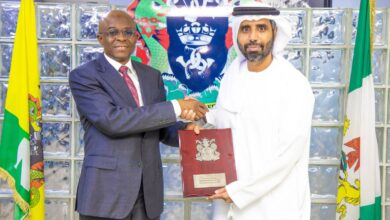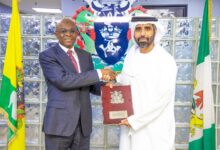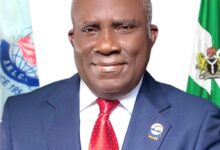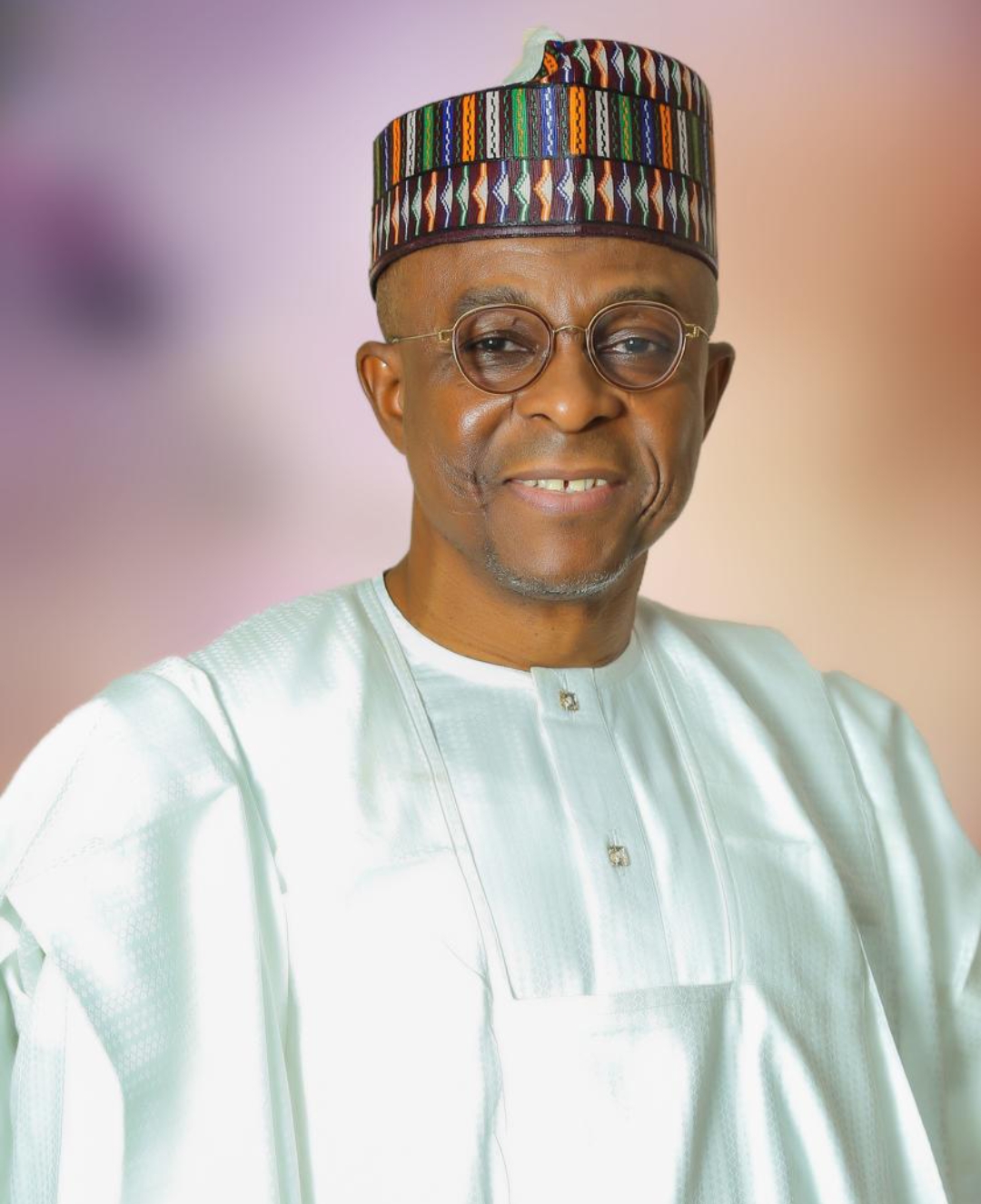
After 32 years of operating with an unsustainable tariff template, the NPA adopts a 15 percent upward review of charges to meet it’s need for facility upgrade, human capital development and modernisation
Though unsung, Nigeria’s port tariff attributable to the NPA stands out as one of the lowest in the world despite the it’s persistent struggles to meet up with the demands for modern port management.
 Compelled by the exigency of bringing Nigerian Ports up to speed with those of its peers in terms of infrastructure and equipment, the Nigerian Ports Authority (NPA) has secured necessary approvals for an upward review in its tariffs which was last reviewed in the year 1993.
Compelled by the exigency of bringing Nigerian Ports up to speed with those of its peers in terms of infrastructure and equipment, the Nigerian Ports Authority (NPA) has secured necessary approvals for an upward review in its tariffs which was last reviewed in the year 1993.
The 15% upward increase which is to cut across all NPA Rates and Dues is premised on the urgent need to address the undesirable reality of aged and weak Infrastructure, obsolete equipment and slow Port capacity expansion which has continued to diminish the performance and indeed competitiveness of Nigerian Ports.
 Globally, Port Authorities depend on revenue from operations to stay alive to their responsibilities which includes construction and maintenance of Port infrastructure, dredging of channels, provision of aids for safe navigation, provision of modern marine crafts for efficient harbour services, automation and digitization of port transactions, port security, energy efficiency and training and retraining of its employees.
Globally, Port Authorities depend on revenue from operations to stay alive to their responsibilities which includes construction and maintenance of Port infrastructure, dredging of channels, provision of aids for safe navigation, provision of modern marine crafts for efficient harbour services, automation and digitization of port transactions, port security, energy efficiency and training and retraining of its employees.
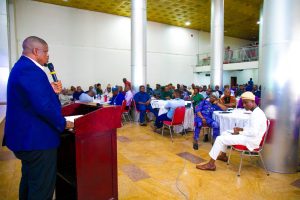 The global index of Port rating and competitiveness which the international trade community relies on for its choice of countries to do business which derives its data from how well the aforementioned responsibilities are addressed.
The global index of Port rating and competitiveness which the international trade community relies on for its choice of countries to do business which derives its data from how well the aforementioned responsibilities are addressed.
Coming at this period of global economic upheaval and scramble for markets, this belated Tariff review borne out of necessity constitutes a critical success factor in Nigeria’s quest to win back cargo handling business and it’s accompanying benefits including job opportunities it had lost to it’s maritime neighbors.
Contrary to the popular but erroneous notion that attributes high Port costs to NPA relative to its peers, verifiable data shows NPA Tariffs are amongst the lowest in the region.
The high incidence of unreceipted costs due to unduly high human interface, bureaucratic bottlenecks, functional overlaps resulting from absence of a Port Community System (PCS) and its corollary the National Single Window (NSW) are responsible for this contrived falsehood.
QUICK WINS OF NPA TARIFF REVIEW
Although long overdue, a quick win benefits of the NPA Tariff review for stakeholders, is the immediate boost it gives to the Authority to fast track the commencement of actual works on its concluded Port reconstruction and modernization plans.
Secondly, the Tariff review provides the necessary guarantees to fund the acquisition and urgent deployment of the Information Communications Technology (ICT) backbone of the PCS which is the precursor to the implementation of the National Single Window
Furthermore, the increased revenue generation arising from the review buoys the Authority’s capacity for critical maintenance works to open up the Eastern Ports for increased vessel and cargo traffic such as the reconstruction of collapsed Escravos Breakwaters and challenged aspects of Rivers, Onne and Calabar Ports respectively.
At a stakeholders meeting in Lagos,Managing Director of NPA,Abubakar Dantsoho represented by Olalekan Badmus, Executive Director Marine and Operation said the management decision to meet stakeholders was borne out of desire to carry everyone along
Speaking at the meeting ,Joshua Asanga a stakeholder agreed with the increase adding that the value of NPA present tariff has since been suppressed Inflation which is at about 35% .
Asanga listed port management liabilities like wages, fuel and other areas of expenditure as having adjusted upwards without a commensurate rise in NPA charges for over thirty years
He added that NPA needs funds for improved port infrastructure, robust ICT for Port Community System, procurement of tug boats and other operational platforms to achieve efficiency
Another stakeholder,Demian Ukagu, who spoke at the event talked on th need to apply more NPA funding to outer port facilities and jetties like the Kirikiri Lighter Terminal and development of other critical port facilities across the country.
He added that NPA rates should be able to cover these cost that would guarantee minimum return on investment and promote sustainable trade.
The meeting agreed that existing tariffs were set devoid of capital cost, labour cost, consumables and overhead expenditures needed to run the ports
They feared that keeping the ports on the old tariff would promote consequences like poor service, inadequate infrastructure,poor remuneration ,obsolete critical port facilities, equipment and infrastructure
The NPA management also made additional clarification on the tariff saying
the upward review will not affect item rates like throughput and lease fees; rents on NPA landed properties ; Maritime Organisation of West and Central Africa (MOWCA) levy;service boat operations and hourly towage and mooring charges.
The NPA also advised that Port cost should not be taken for NPA charges as the port cost covers charges by other government agencies operating at the nation’s port.
REALITY CHECK
No business in the world is stuck at using a 32 year old pricing template for it’s 2025 transaction as this is largely unrealistic, unsustainable and cannot help in the drive towards competitiveness and efficiency
The last time NPA tariffs were increased was in 1993 when the exchange rate was N4.7k to 1US Dollar and government revenue through the tariffs have consistently suffered decline due to the attendant effects of the naira devaluation
Findings show that the rates were simplified in 2001 to provide a handy tariff compilation for the public. The same tariff was unbundled in 2006 at the commencement of port concession to differentiate the NPA charges from the ones to be collected by the terminal operators with regards to cargo handling operations
The rates inherited by terminal operators have inbuilt adjustment mechanism, which is being taken advantage of by the private operators and have enjoyed the support of Nigerian Shippers Council . In the face of these the NPA’s rates remained static.
Sister government agencies like the Nigeria Customs Service (NCS) operating within the same maritime ecosystem have always adjusted their duty rate in line with the prevailing exchange rate and market reality at any point in time. Freight rates have also been adjusted by very high margins over the years
A slight 15 percent upward adjustment coming after 32 years is widely viewed as fair and considerate in the face of market reality






